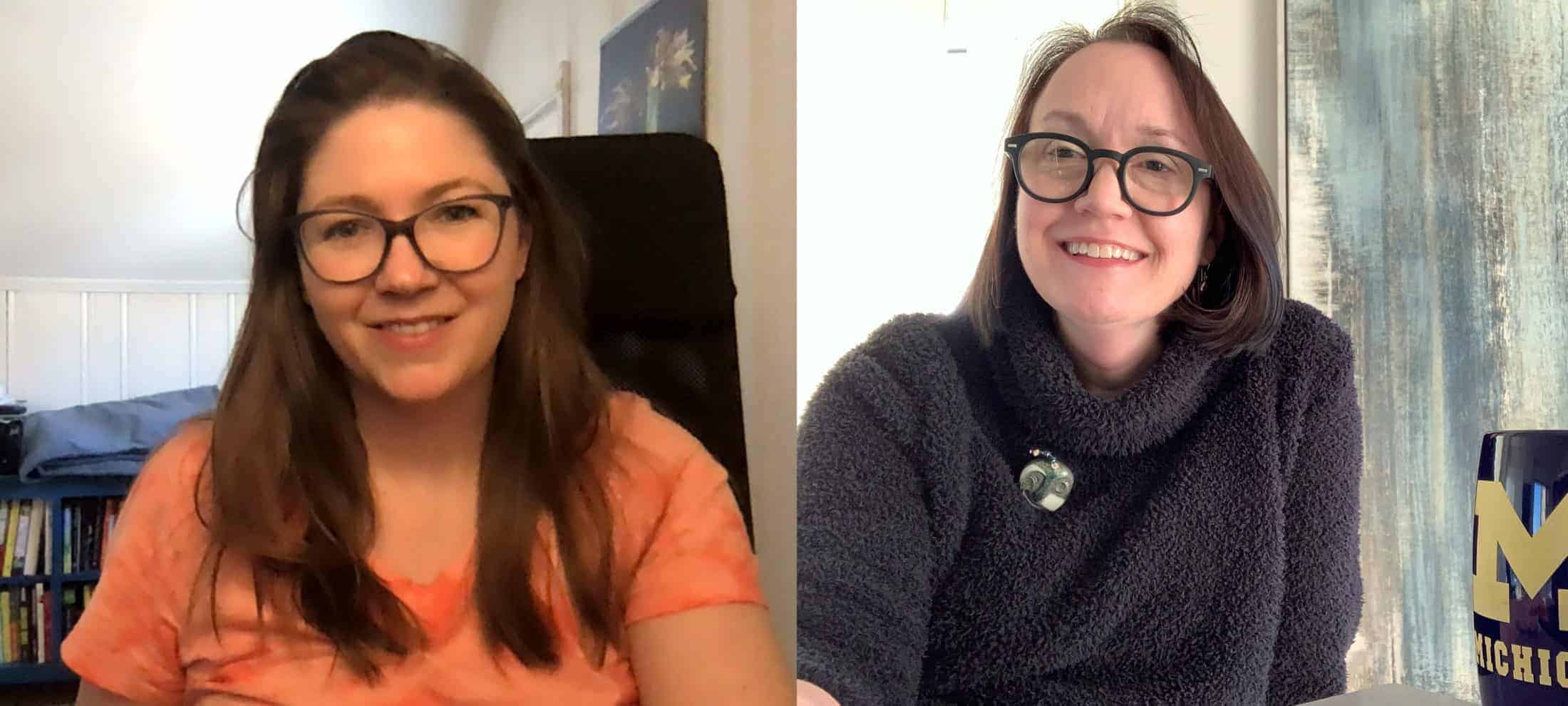
Q&A with Kristine Svinicki
Suzanne Baker recently chatted with Svinicki about her new adjunct professor role at NERS.

Suzanne Baker recently chatted with Svinicki about her new adjunct professor role at NERS.
Kristine Svinicki recently joined the U-M Department of Nuclear Engineering and Radiological Sciences (NERS) faculty as an adjunct professor. Suzanne Baker is Creative Director for the Fastest Path to Zero Initiative, a close partner of NERS.
Suzanne Baker: Kristine, our paths cross again! Do you remember how we first met? Do you mind if I quickly recap for folks?
Kristine Svinicki: Oh gosh! This is the point where you wonder if you should be bracing yourself… (laughs)
SB: So, almost a decade ago I was about to give a talk at the World Nuclear Association meeting in London, and I was nervously going over my slides in the back of the auditorium, and you came up and gave me the sweetest pep talk. And it wasn’t until later in the meeting that I learned who you were—and you’ve so generously checked in on me and encouraged me in my career ever since.
KS: That much I do remember, but what sticks out so much more in my mind was how impressive and fresh your take was on the broad issue of public perceptions about energy, and nuclear energy in particular. I just remember sitting there thinking, “If we could get more real dialogue going on topics like this, with diverse perspectives represented in the same room, maybe we could really shift the discussion.” And here you are … doing just that.
“Our complex problems in the energy sphere are intractable but they are not unsolvable … I look forward to exploring the ecosystem and joining with others to find those possibilities.”
—Kristine Svinicki
SB: You can imagine that when I found out you were coming back to the University of Michigan as an Adjunct Professor for Nuclear Engineering and Radiological Sciences I was completely thrilled! It’s absolutely wonderful news! Can you tell me a bit about why you agreed to come back to your alma mater and what attracted you to the role?
KS: To start with the obvious, as a Michigan graduate back in 1988 of what was then the Department of Nuclear Engineering, it’s an honor and delight to come back to my “academic home” again. But on a more substantive level, I would say what really compelled me was Dean Gallimore’s commitment to interdisciplinary team-based problem solving, which I had an opportunity to discuss with him in 2017 during homecoming weekend. His core belief in structuring those kinds of opportunities, even within the undergraduate curriculum, really sparked my interest. And Todd Allen’s implementation of that multidisciplinary focus within NERS, his real-world interest in making that happen, was another big draw. There is a genuine window here to move the ball forward.
SB: Let’s talk about that a bit. Interdisciplinary work is so important and it’s really hard to do well! We focus on this at Fastest Path and we’re constantly grappling with it. What have you learned about working across disciplines during such a distinguished career with multiple roles in government and how can academia better prepare students for the realities of our complicated world and the really tough problems they’ll be faced with after graduation?
KS: Well, that’s exactly the issue, isn’t it? The engineers we train today are, for the most part, going to end up working on teams—across subject matter, across disciplines—with the goal of solving problems across broad dimensions. In over 30 years of public service, as my responsibilities grew, I witnessed this time and again. Across all domains, the public policy issues we are confronting today absolutely require this multi-dimensional approach. Without it? We end up with what we have too much of already … lots of polarized, unidimensional, “my way or the highway” talk with little real dialogue, where the consensus terrain consists of a null set. When we have so many complex problems to address, stalemate is not only frustrating but has the potential to be quite tragic. I see people here, like you, truly committed to avoiding this. I want to be a part of that effort.
SB: So you find yourself transitioning from not just leading the NRC, a huge federal agency, but you have worked to truly transform and modernize it—you’ve just achieved something that is so remarkable. As you think about bringing those experiences back here to NERS, what’s at the front of your mind? What advice would you give folks like me about the future of the nuclear sector?
KS: Well, I could say a lot on that topic (laughs) but maybe I’ll answer by taking us back to the story of our first meeting. What I heard in your London presentation years ago was an expression of the wisdom of the “beginner’s mind” which has a lot of definitions but is basically just approaching a subject, even at the advanced level, with an openness and a lack of preconceptions. The Zen teacher Shunryu Suzuki has a saying that “In the beginner’s mind there are many possibilities; in the expert’s mind there are few.” Our complex problems in the energy sphere are intractable but they are not unsolvable. The approaches being taken at Fastest Path and across the University are proof of that. I look forward to exploring the ecosystem and joining with others to find those possibilities.